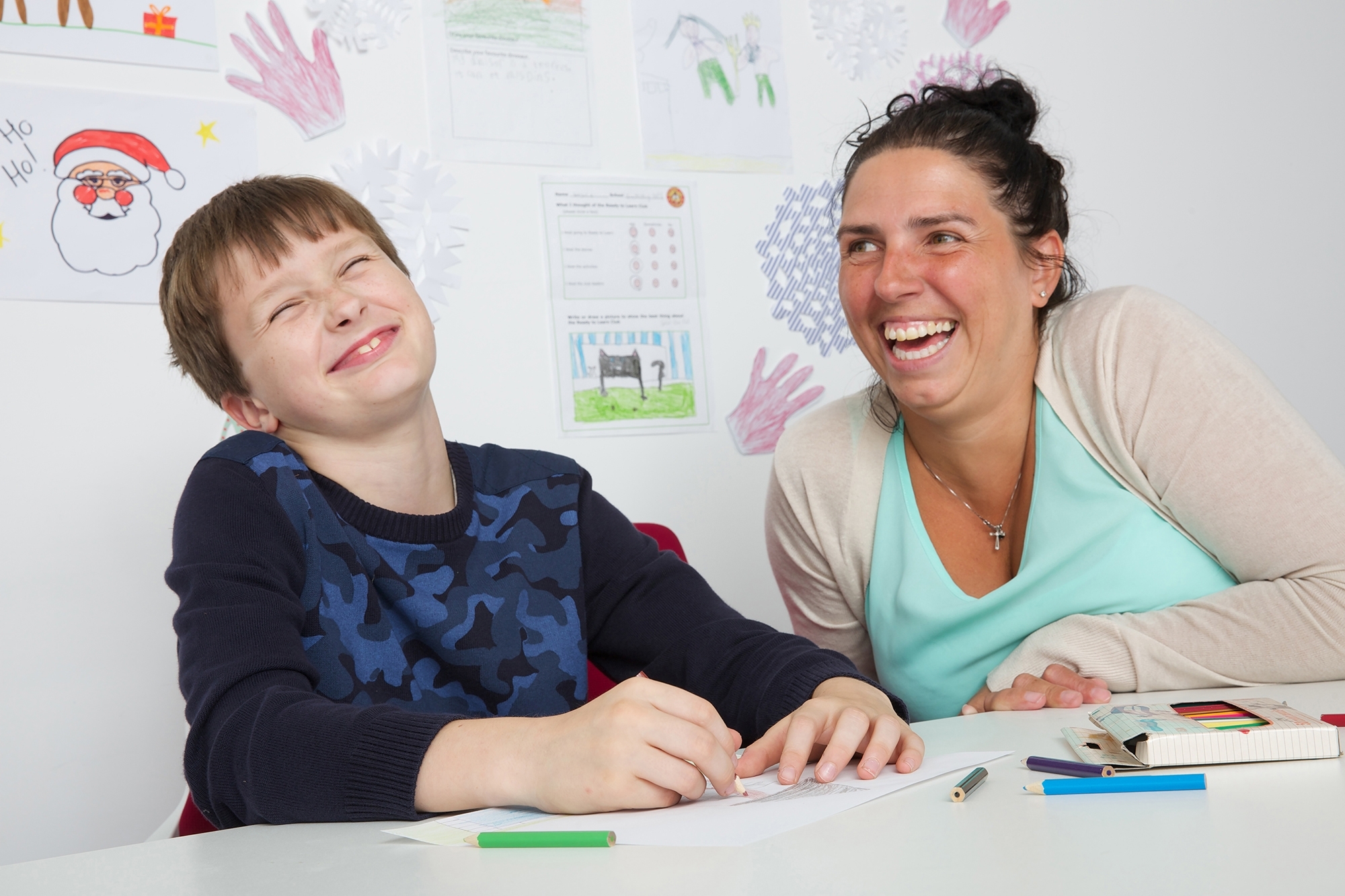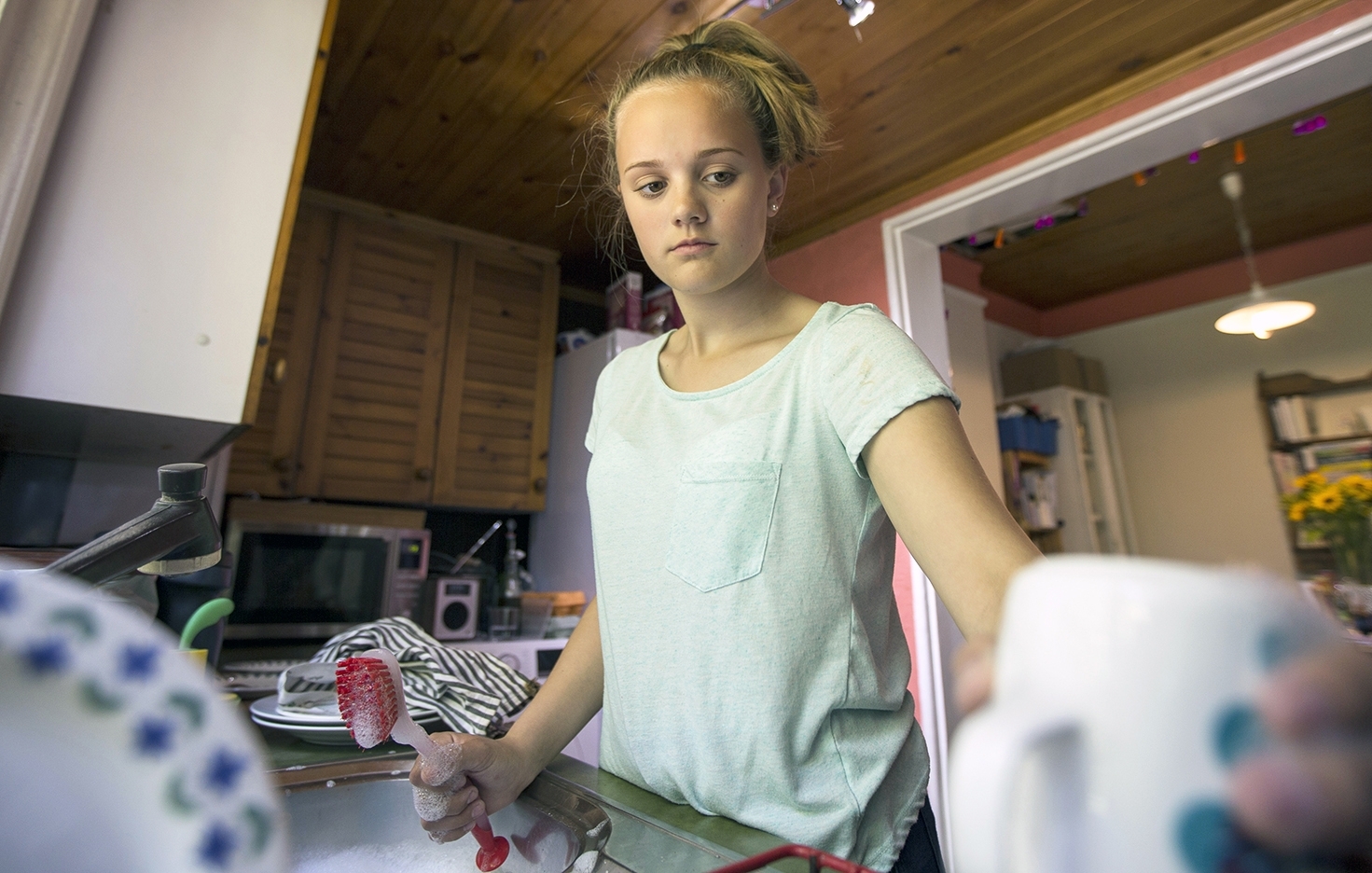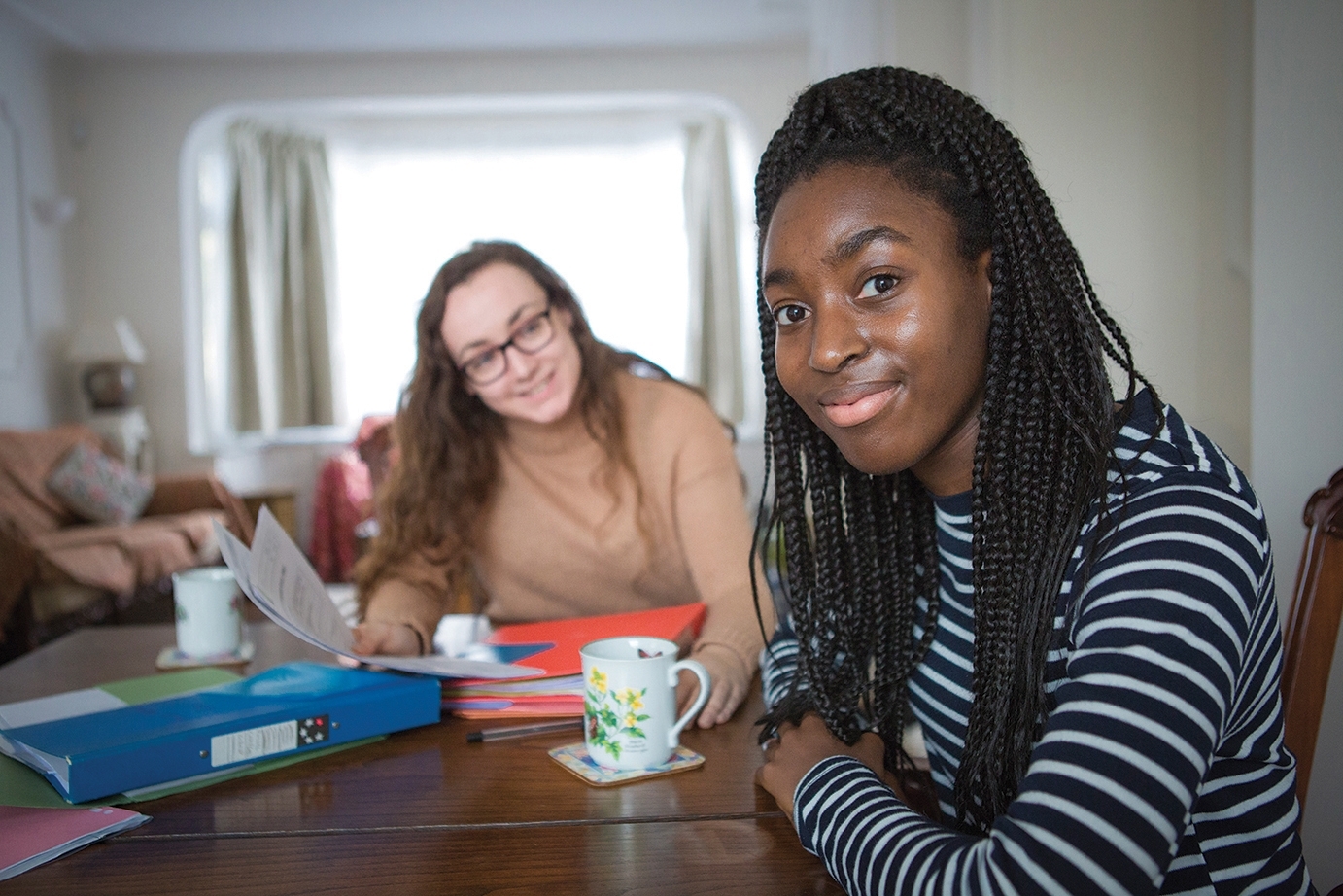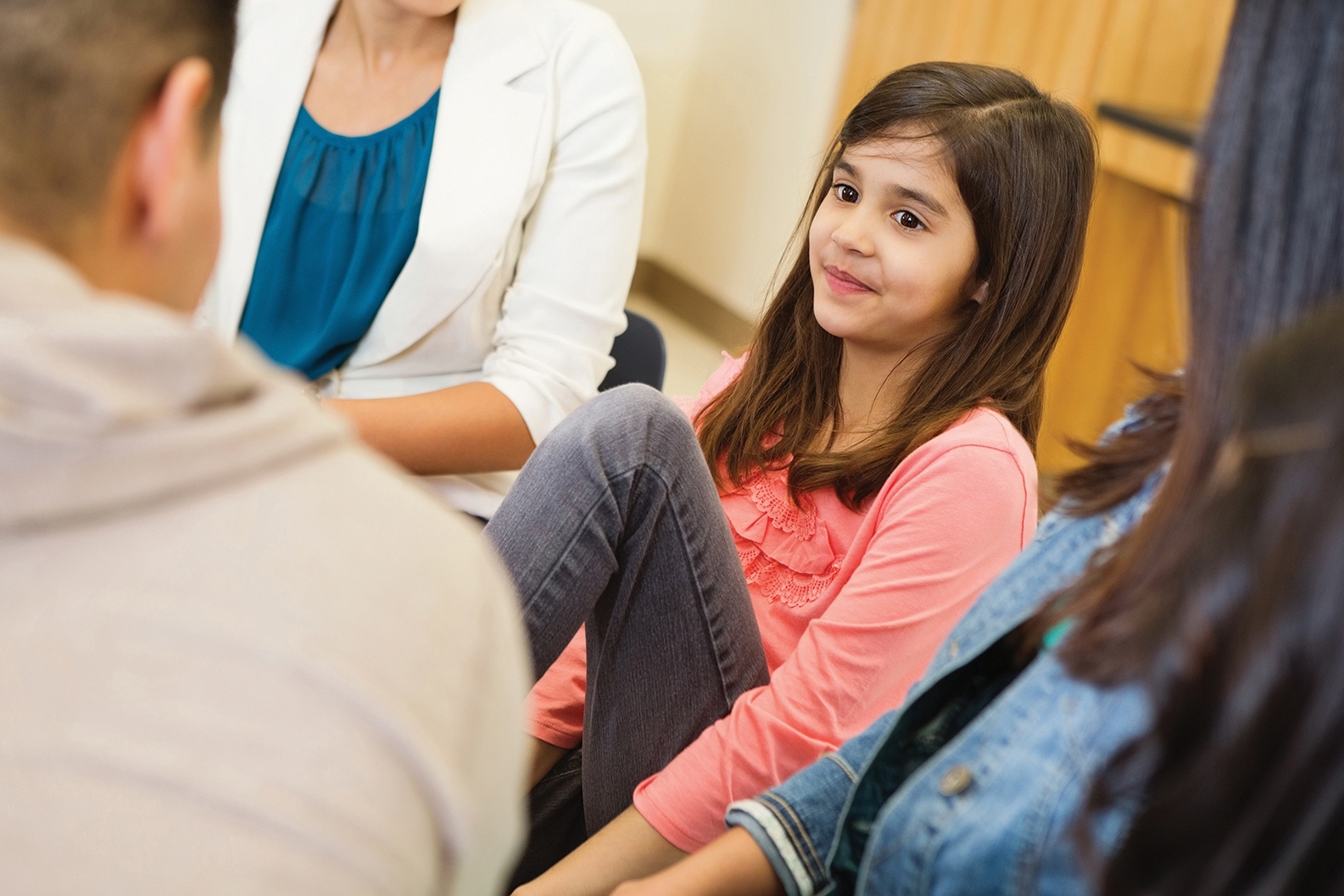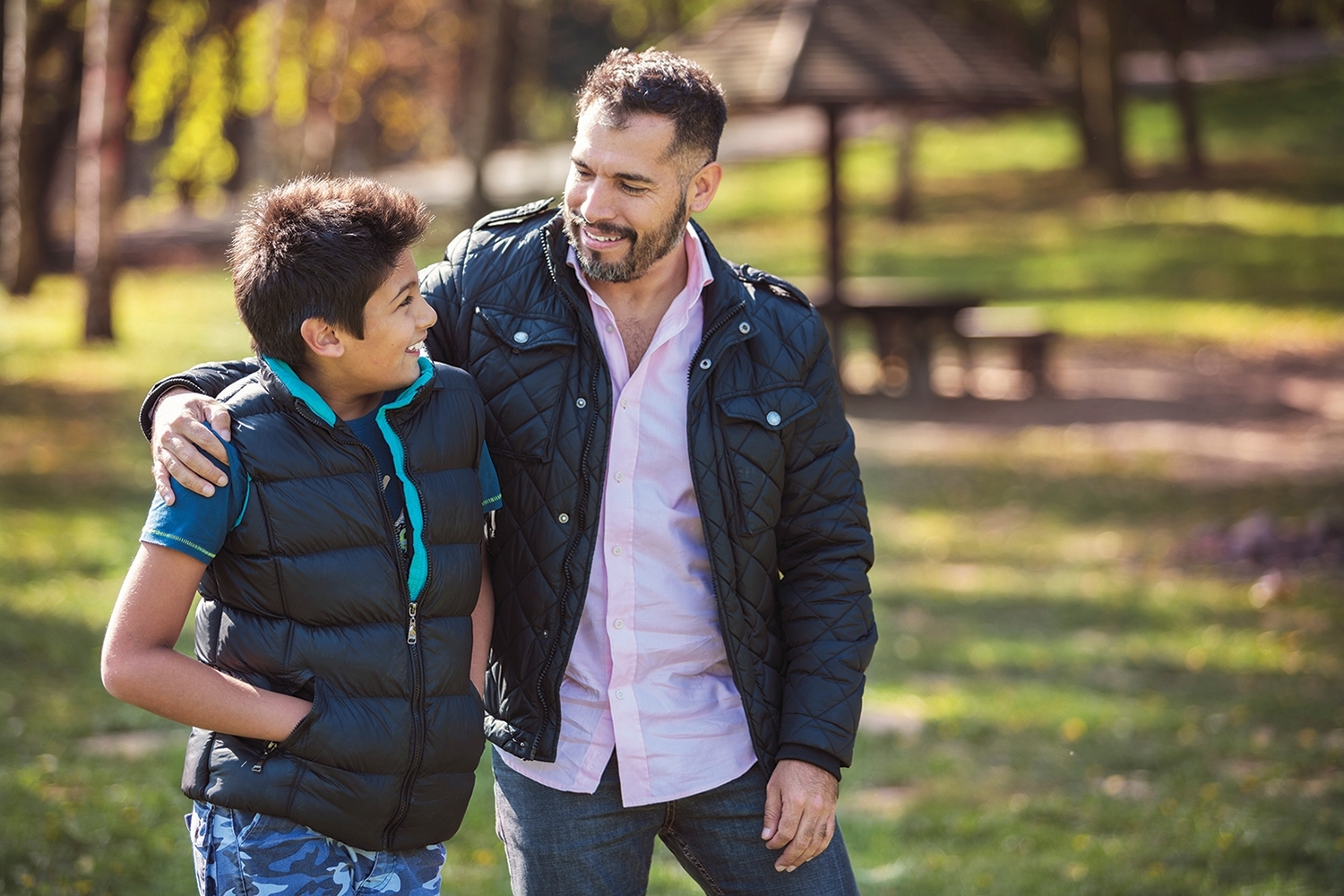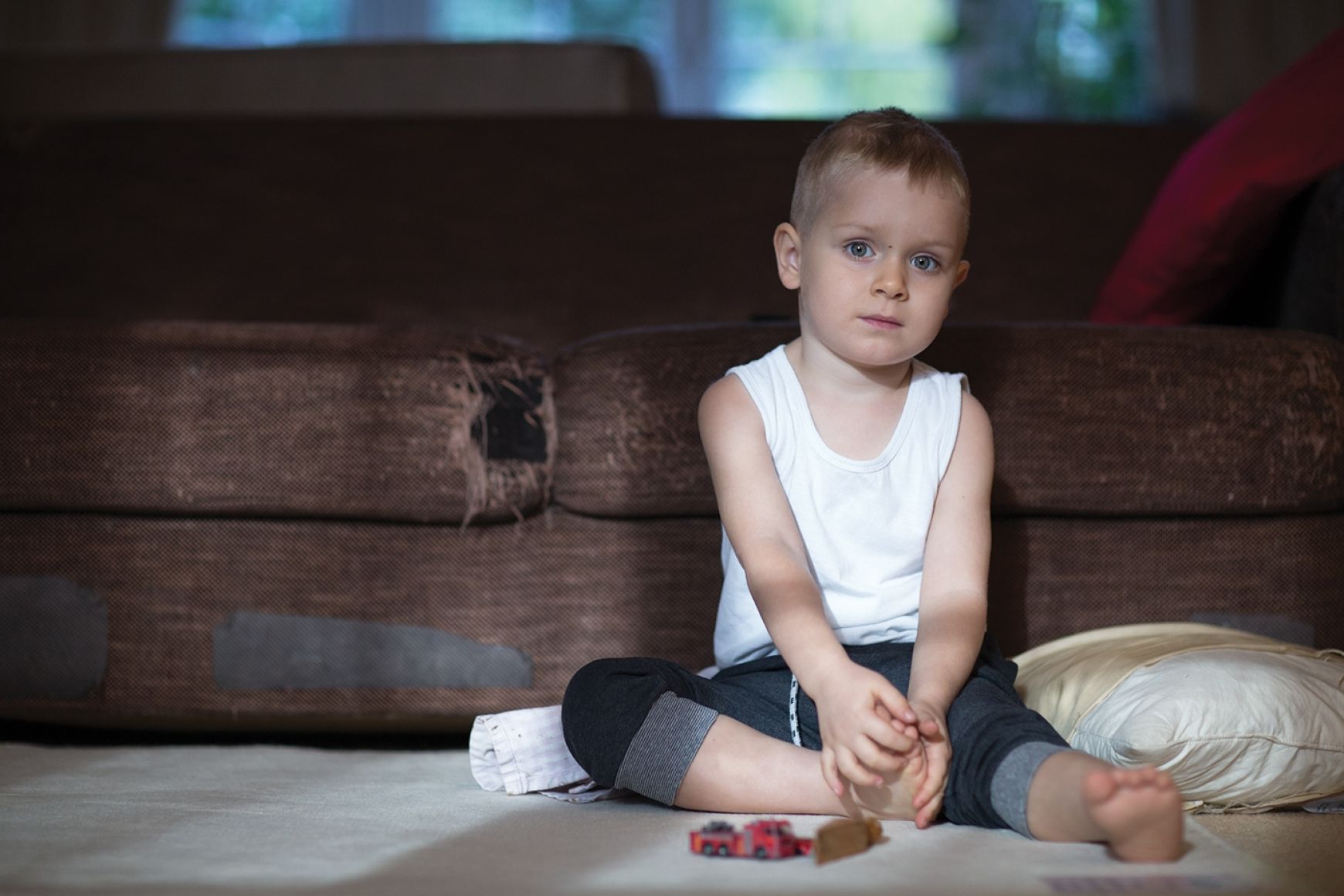
Our work
Stronger Families:
Mental Health
and Wellbeing
Introduction
We believe that children and young people thrive with the love and support of their families.
Every family faces challenges. We help families, who may have additional barriers or be particularly isolated, to overcome obstacles and access the support they need. We recognise that many of the children, young people and families we support need help with their mental health and wellbeing.
Around one in ten children have a diagnosable mental health condition, equating to roughly three children in every classroom1. With half of all lifetime cases of mental illness evident by age 14, and three quarters, (75 per cent) developing by age 242, there is a strong case for prevention and early intervention support for children’s mental health.
Some children and young people are more likely than their peers to experience poor mental health:
- looked after children are just over three times more likely to have a diagnosed mental health issue than disadvantaged children, and over five times more likely to have a mental health condition than non-disadvantaged children3
- those with a learning disability, and those with a chronic physical health condition, are also at higher risk (between 2-6.5 times).4
Research suggests mental health and wellbeing can be shaped by individual attributes, social circumstances and the environment we live in5. These factors are complex and dynamic – that is, they regularly change and interact over time. Some groups of children and young people are more likely to experience poor mental health for a number of reasons, such as those children living in areas of high socio-economic deprivation, those experiencing chronic health problems, minority groups and children exposed to or displaced by war or conflict, such as unaccompanied asylum seeking children. In early childhood, risk factors include experience of abuse and neglect, experience of bullying, and living in poor housing conditions.
Some of the children Barnardo’s works with need tailored help with their mental health, including young carers, looked after children, LGBTQ young people, ethnic minority groups, those involved in the youth justice system, those not in employment, education or training, and young parents.
Still Hidden, Still Ignored: Who cares for young carers?
In our research into support needs for young carers, ‘Still Hidden, Still Ignored: Who cares for young carers?’6, over 50 per cent of the 79 young carers who responded to our survey felt that being a young carer had impacted on their emotional and mental health, with 56 per cent saying that being a young carer made them feel anxious or worried, and just under 40 per cent saying it made them feel like they couldn’t cope.
This evidence was also supported by a survey of 40 Barnardo’s practitioners, where 76 per cent felt that most or all of the young carers they worked with suffered from anxiety, anger and isolation. All practitioners had worked with young carers who self-harmed, 97 per cent worked with young carers who had panic attacks, and 94 per cent had worked with young carers who had eating disorders.
Research suggests that families with experience of Adverse Childhood Experiences (ACEs)7 are also at increased risk of poor mental health, including depression and suicide.
The Adverse Childhood Experiences of children supported by Barnardo's AXIS service
Our AXIS service in Lanarkshire works with young people aged 11 to 21 (26 if the young person has left care) who have been impacted by parental, or their own, substance misuse, and who have complex issues. We also work with the families of the young people we support. One-to-one support is provided twice per week, alongside group work programmes and family support.
Of the 58 young people that received support from AXIS in 2017-18, 41 (71 per cent) had experienced four or more ACEs, and 22 (38 per cent) had experienced seven or more.8
The Adverse Childhood Experiences of children supported by Barnardo's Here and Now service
Our Here and Now service at HMYOI Polmont provides specialist assessment and direct intervention to young people affected by trauma, bereavement and loss. Depending on need, young people are supported either through a psycho-educational intervention, for up to 12 weeks, offering structured personal learning regarding trauma, bereavement and loss experiences, or a psychotherapeutic intervention for up to 30 weeks with individuals assessed at five week intervals regarding progress.
In our Here and Now service, 82 per cent of 70 females supported by the service in 2017-18 had experienced four or more ACEs; 36 per cent had experienced eight or more. Most common were parental separation, substance misuse, mental ill health, and emotional neglect. Of the 80 males in custody we supported, 62 per cent had experienced four or more ACEs; 23 per cent had experienced eight or more. Most common were parental separation, mental ill health, parental imprisonment and domestic violence.9
Research also tells us that:
- Child and Adolescent Mental Health Services (CAMHS) are turning almost a quarter (23 per cent) of children away from accessing support because their condition is not considered sufficiently serious10
- Waiting times for treatment have almost doubled since 2011-12; the average maximum waiting time for CAMHS is now six months for a first appointment and almost ten months until the start of treatment11
- Only 0.7 per cent of NHS funding in England is spent on young people’s mental health, and only 16 per cent of this on early intervention.12
CAMHS rejected referrals research
In a review of almost 3,000 case files, Barnardo’s highlighted that 50 per cent of young people being supported by our services in Scotland were presenting with a mental health issue; however three quarters were not receiving support from CAMHS.
Our Audit of rejected referrals to Child and Adolescent Mental Health Services in Scotland13 report included insight from interviews with 40 Barnardo’s practitioners in Scotland, and highlights five key reasons for referrals to CAMHS being rejected:
- Lack of stability – Children and young people who do not present as stable or who are not in a stable placement are likely to be rejected by CAMHS for treatment
- Lack of engagement – Children and young people who do not engage with CAMHS or fail to attend appointments can be rejected for treatment
- Presenting symptoms not seen as severe enough – Referrals are often rejected because young people are not presenting with severe enough clinical problems; behavioural and emotional problems tend to be outside the remit of CAMHS
- Lack of clarity around who can refer and why – A lack of clarity around the criteria and thresholds for those referring into CAMHS results in inappropriate referrals and rejections for young people
- Service already being provided by another organisation – Young people can be rejected for treatment with CAMHS because they are already receiving support from another organisation (e.g. Barnardo’s).
Objectives
Our overall objectives for Mental Health and Wellbeing
Our Mental Health and Wellbeing Core Priority Programme aims to:
- address the underlying determinants of poor mental health
- build resilience within children and young people
- provide specialist support
- support people around the child including families, teachers, and front-line practitioners
- be an agent for systems change, focused on an ecological model of support
- influence wider policy and practice so that the risks of poor mental health and wellbeing are reduced, and children and young people achieve their full potential.
Our approaches
Our services support children and families across an ecological model. This means there are services that support mental health and wellbeing in each of the environments (family, schools, and community) that affect how a child grows and develops.
We also recognise the importance of building resilience, supporting families to ‘self-care’ and look after each other, and enabling our staff to respond to need in a trauma-informed way, focusing on ‘what’s happened to you?’ rather than ‘what’s wrong with you?’ Our approach is based on an understanding of the importance of relationships and connections.
Our work focuses on building relationships in order to develop a ‘whole-system approach’, with shared responsibility for improving mental health and wellbeing across wider society.
Outcomes
Outcomes of direct work
Building Resilience
Promoting Alternative Thinking Strategies (PATHS®)
The Promoting Alternative Thinking Strategies (PATHS®) Curriculum is a school-based programme which aims to improve emotional and social competencies in primary school pupils.
During regular taught lessons, pupils engage in a range of activities aimed at improving their social and emotional competence, and reducing aggressive behaviours.
In 2017, the impact of PATHS® was evaluated via a variety of methods including: ‘pre and post’ teacher surveys, pupil voice, and senior leadership team surveys.
In Northern Ireland, feedback from PATHS® schools revealed that out of 2,354 pupils:
- 65 per cent demonstrated improved social and emotional competence
- 60 per cent of pupils showed reduced aggression or disruptive behaviour
- 59 per cent showed improved concentration and attention.
PATHS® – Teacher Rating Scale, 2017

“Before learning about PATHS® I would have got really angry, really quickly. I have learnt how to calm down and try to think through the problem. PATHS® has really helped me in the playground, in class and I also use it at home when mum makes me do something that I don't want to do!"
Dani, Pupil
PATHS® – Teacher feedback, 2017

“PATHS® has helped improve relationships in the school between adults and children...it is a very worthwhile programme.”
Vice Principal
Wellness Recovery Action Plan (WRAP)
Barnardo’s was one of the first to pioneer WRAP for young people in the UK.
WRAP is a 10-week peer support programme which aims to build resilience and promote self-care among young people. It supports young people to develop their understanding of what they are like when they are well and what they can do to keep themselves well. Young people produce a wellness toolbox, and their own plan to cope with difficult times and challenging feelings.
In 2017-18, across Bradford, more than 25 WRAP groups were delivered to 220 young people. ‘Pre and post’ evaluation surveys showed:
- 73 per cent improved self-esteem – “how I think about myself”
- 70 per cent improved mental health – “how I feel”
- 67 per cent improved resilience – “how I cope with life’s challenges”
- 50 per cent improved social skills – “how I make friends and keep them”
- 40 per cent improved communication – “how I talk about my feelings”
Figure 1: WRAP Outcomes, Bradford, 2017-18

Once they’ve completed WRAP, young people are offered the opportunity to attend a peer support group for continued support.
“Before coming to WRAP, I wasn’t very confident and didn’t know much about my mental health. After learning about my triggers and how to cope with future issues I am now much better and feel more happy with myself....I would definitely recommend WRAP to other people as I have learnt so much”.
Sophie, young person
Elise’s story
Coming to the WRAP group gave Elise a safe space to talk about what she was going through. The group helped her to thrive and recognise that she is not alone.Read more
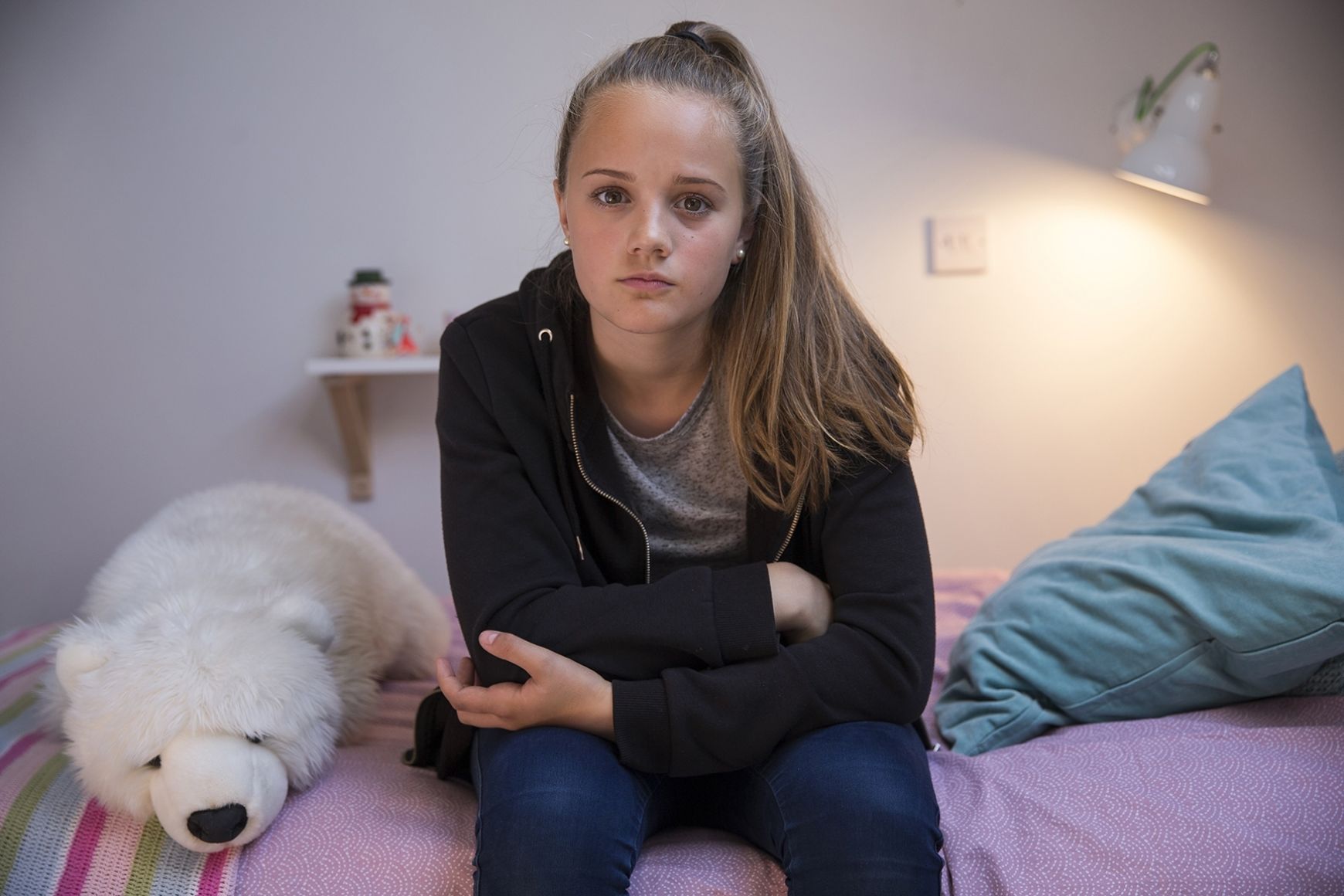
Providing specialist support
Counselling for young people
Our ‘Child-directed, System-focused, Strengths-based, Outcome-informed’ (C.S.S.O) approach to counselling focuses on what works for an individual young person, in their specific context. The approach draws on a range of methodologies such as person-centred counselling, cognitive behaviour therapy (CBT), play therapy, narrative therapy, and solution-focused brief therapy, enabling counsellors to tailor the intervention to an individual child’s preference.
Across Northern Ireland and the West of England, the C.S.S.O Framework is embedded within Barnardo’s Mental Health and Wellbeing counselling service delivery. The impact on more than 600 children and young people has been substantial, with considerable improvements in clinical distress scores.
Kyle’s story
The CAMHS clinician wanted the Barnardo’s Buddy to maintain contact with Kyle by emailing and texting him to start with, allowing Kyle to realise himself that he wanted things to be different.
Kyle
Read more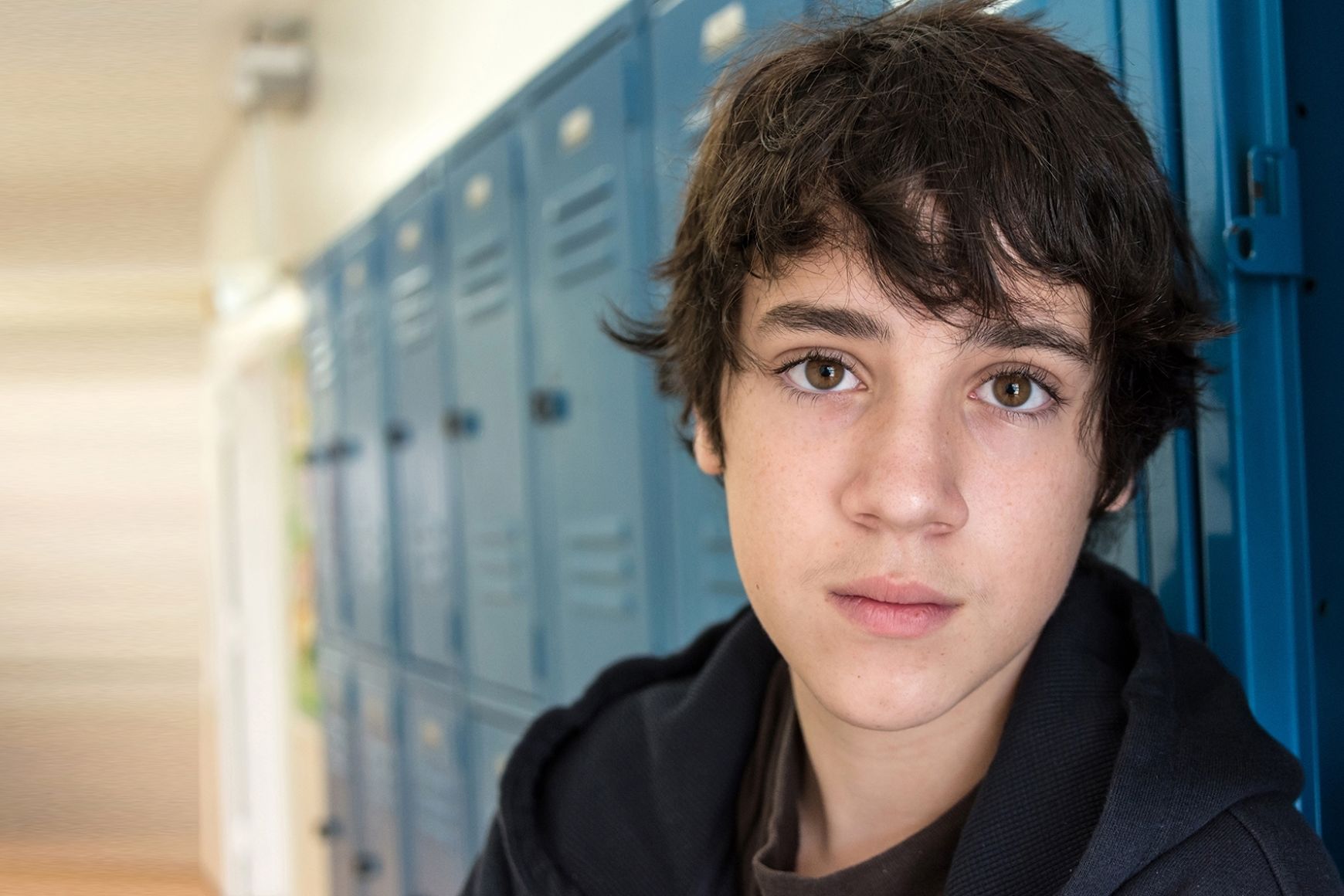
Supporting people around the child
Holistic Support for Families
Our Big Manchester project – led by Barnardo’s, working together with Mind, Women’s Aid, CGL (drug and alcohol service) and Homestart (family support) – has successfully developed a new voluntary sector approach to working with families. The project provides support for children aged 5–11 years old, and their parents, where domestic abuse, mental ill health, or substance misuse is present, to mitigate risk and build family strength and resilience. The focus is on simultaneously addressing needs of parents and children, and building meaningful relationships based on trust, honesty, support and challenge. This approach, when underpinned by a high level of engagement from families, can lead to sustained change for the whole family.
The impact of the project is measured using Barnardo’s Outcomes Monitoring Framework. Figure 2 shows outcomes for 40 individuals whose cases closed in 2017-18, showing particular improvements in:
- reduction in level of risk/harm
- children’s school attendance
- ability to express feelings.
Big Manchester was cited as a best practice example by the Early Intervention Foundation.14
Figure 2: Outcomes for ‘Big Manchester’ service, 2017-18

Therapeutic support for families
Our Mandala service in the South West of England has been providing creative therapies for traumatised or abused children and their families for over ten years. It was evaluated by the Institute of Public Care through both qualitative and quantitative research.15 The evaluation reported that in a number of cases, exposure to trauma was chronic (i.e. sustained over a long period), with children witnessing domestic abuse (including physical harm to a parent), neglect, physical harm by a parent, sexual abuse, parents/carers with substance misuse issues and bereavement of a parent). Many children display challenging, disruptive or internalised behaviours (e.g. anxiety and fear), with some also displaying signs of an insecure or disorganised attachment.
The evaluation found that Mandala provided children with a calm, safe, and nurturing space. Children are listened to and believed, and some disclose abuse, indicating a high level of trust with therapists. Outcomes recorded for the children included:
- Ability to express their emotions (and acceptance that it’s good to express yourself)
- Improved behaviour control (where this was an issue at the start)
- Improved self-confidence and self-esteem (less guilt and frustration)
- Increased ‘day-to-day resilience’
- Improved ability to understand complex overwhelming emotions.
Children and families experiencing a less significant or less extensive positive impact were very likely to be experiencing ongoing trauma.
The interim evaluation highlighted that it is important to consider the extent to which parents and carers can be encouraged to become more involved in one-to-one therapy, as appropriate; and how most effectively to address the potential of ongoing child exposure to trauma during the intervention period.
Systems Change
Solar Emotional Wellbeing Service
In partnership with Birmingham and Solihull Mental Health NHS Foundation Trust and Autism West Midlands, we provide the Solar service which delivers emotional wellbeing and mental health services for children and young people aged 0 to 19 in Solihull.
Solar was set up to provide timely access to appropriate support in line with children and young people’s needs, rather than being bound by thresholds or tiers. Solar aimed to create a comprehensive system, designed around the needs of children and young people, to keep them healthy as well as treating those who are ill. Solar prioritises resilience, partnership, and co-production.
Results from Solar show:
- Over 1,500 children and young people were supported with their emotional wellbeing and mental health
- All children and young people showed improvements on their outcome measures
- The service played a significant role influencing the NHS on CAMHS delivery
- Waiting times upwards of 12 months for most interventions were reduced to less than three months for most interventions.
Latest figures from the National Mental Health Data Set show that Solar
is the only community mental health service in England to have met the national target of a 30 per cent increase in access to NHS community services for those with a diagnosed mental health issue – hitting 34.7 per cent.
Figure 3: Community Mental Health Service Access Rates, 2018

Solar Parenting Support Programme: Cost-benefit analysis
The Solar Parenting Support Programme ‘Understanding Your Child’s Behaviour’ aims to help reduce parents’ anxieties, improve parent-child relationships, and positively impact on child behaviour. Evidence from the service has shown improvements in child mental health, as measured by the Strengths and Difficulties Questionnaire (SDQ). Other research (in particular a report by Pro Bono Economics16) has used changes in SDQ scores to calculate the potential economic impacts associated with changes in children’s mental health.
Replicating the methodology in the Pro Bono Economics paper, we calculate that every £1 spent on the Solar Parenting Support Programme delivers long-term benefits of £5.50, in the form of higher earnings for the individual and a lower cost to the taxpayer17.
Influence
Influencing wider policy and practice
In addition to our direct support work, we inform, influence and campaign on mental health and wellbeing and related issues locally, regionally and nationally.
Barnardo’s Inaugural Lecture: Adverse Childhood Experiences (ACEs)
In 2018, we hosted our Inaugural Lecture on Adverse Childhood Experiences. The event aimed to increase awareness of ACEs as a key factor affecting children’s mental health, and highlight the work we are doing to implement change to reduce the life course impacts of ACEs. Professor Gordon Harold, Professor of Child and Adolescent Mental Health at the University of Sussex, gave the keynote speech, highlighting his work with Barnardo’s Cymru to develop the Barnardo’s Child and Adolescent Welfare Assessment Checklist (B-CAWAC). B-CAWAC is a set of assessment tools focusing on early identification of the psychological impacts of parental conflict, adult substance misuse, and adult mental health problems on children’s mental health and wellbeing.
Parliamentary Inquiries, Reviews and Government Consultations
In England, we submitted evidence to support a number of parliamentary inquiries, including:
- the Science and Technology Committee on the impact of social media and screen-use on young people's health
- the House of Commons Science and Technology Committee on Evidence-based early-years intervention inquiry, which had a focus on ACEs
- the Education and Health Select Committee on the scope and implementation of the proposals in the Government’s ‘Transforming Children and Young People’s Mental Health Provision: a green paper
Figure 4: Outcomes from Bournemouth Children’s Centre: first and last Star readings, 2017-2018

Wider learning
Wider Learning about achieving Stronger Families
Reflect Service
Reflect aims to provide practical and emotional support to women and their partners who have experienced the compulsory and permanent removal of a child from their care. We provide this support in partnership with Newport City Council and Aneurin Bevan Health Board. An interim evaluation funded by Public Health Wales and Barnardo’s19 found that substance misuse, domestic violence, offending behaviour and risk of sexual exploitation were prevalent amongst those experiencing the removal of a child. All the parents were experiencing depression, with some also experiencing anxiety, self-harm and suicidal ideation. Prior to Reflect, participants were often socially isolated and typically had limited options with regard to accessing support.
The feedback for Reflect was overwhelming positive. Parents particularly appreciated:
- the responsive, flexible approach, with the opportunity to talk to someone who was non-judgemental and supportive
- the variety of support available, including workers ‘just being there’, provision of housing and welfare support, encouragement of personal wellbeing, assistance with child contact, as well as provision of a safe space to help make sense of past experiences.
Footnotes
- Green, H., McGinnity, Á., Meltzer, H., Ford, T., & Goodman, R. (2005). Mental health of children and young people in Great Britain, 2004. Hampshire/New York: Palgrave Macmillan
- Kessler, R. C., Berglund, P., Demler, O., Jin, R., Merikangas, K. R., & Walters, E. E. (2005). Lifetime prevalence and age-of-onset distributions of DSM-IV disorders in the National Comorbidity Survey Replication. Archives of general psychiatry, 62(6), 593-602
- Bazalgette, L., Rahilly, T., & Trevelyan, G. (2015) Achieving emotional wellbeing for looked after children: a whole system approach. London: NSPCC
- Public Health England (2016). The Mental Health of Children and Young People in England. London: Public Health England
- WHO (2012) Risks to mental health: an overview of vulnerabilities and risk factors. Background paper by WHO secretariat for the development of a comprehensive mental health action plan. [Online] Available here
- Barnardo’s (2017) Still hidden, still ignored: who cares for young carers? Barkingside: Barnardo’s
- ACEs are certain traumatic experiences that occur during childhood and are remembered throughout adulthood. These experiences range from suffering verbal, mental or physical abuse, to being raised in a household where domestic violence, alcohol or drug abuse, parental incarceration or parental separation is present. We recognise that comparing ACE ‘scores’ assumes that each adversity carries the same ‘weight’, and that the standard ‘ACEs list’ does not include the diversity of potential adverse experiences during childhood. For more information, see Public Health Wales online resources here
- The research on ACEs does not include all traumatic experiences during childhood. Children in this sample were likely to have experienced other traumas that were not captured as an ACE in this study, and it is a wider limitation of the ACEs research field that a narrow group of experiences have been honed in on, however we are aware that what is regarded as an ACE is slowly expanding
- Centre for Youth and Criminal Justice (2016) Our Lives with Others: an evaluation of trauma, bereavement and loss developments at HMYOI Polmont. [Online] Available here
- Frith, E. (2016) CentreForum commission on children and young people’s mental health: state of the nation. London: CentreForum
- ibid
- ibid
- Barnardo’s (2018) Audit of rejected referrals to Child and Adolescent Mental Health Services in Scotland: experiences of Barnardo’s Scotland staff working in children’s service
- Early Intervention Foundation (n.d) Big Manchester (Improving futures) [Online] Available here
- Institute of Public Care (2018). Evaluation of the Barnardo’s Mandala Creative Therapies Service. Oxford: Oxford Brookes University
- Pro Bono Economics (2018) Economic evaluation of Place2Be’s Counselling Service in Primary Schools[Online] Available here
- Cost-benefit analysis of the Solar Parenting Support Programme – internal report
- Developed by Triangle Consulting Social Enterprise. For further details see here
- Roberts, L., Maxwell, N. & Palmer, C. (2018) Evaluation of Reflect in Gwent: phase 1 report [Manuscript unpublished]

